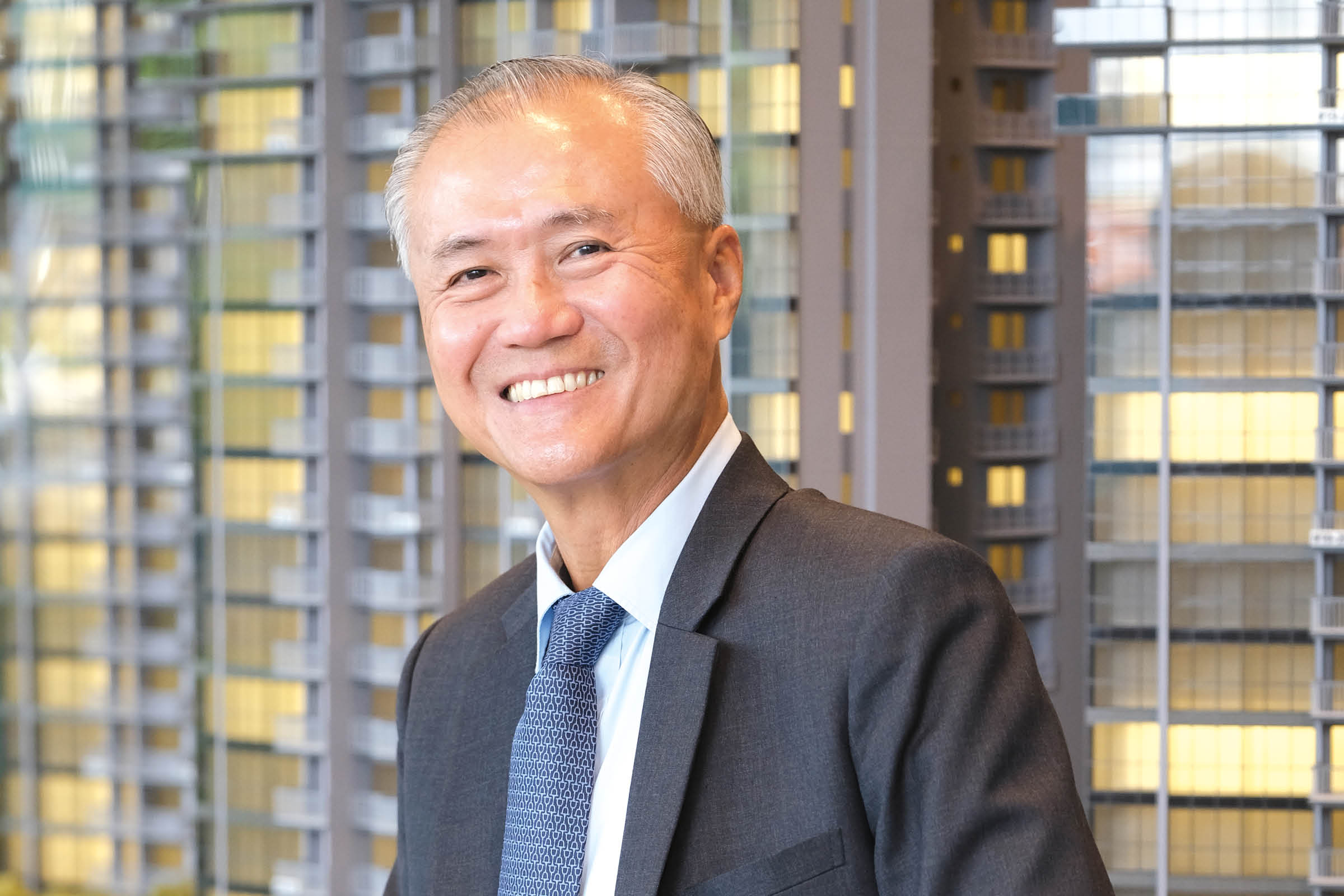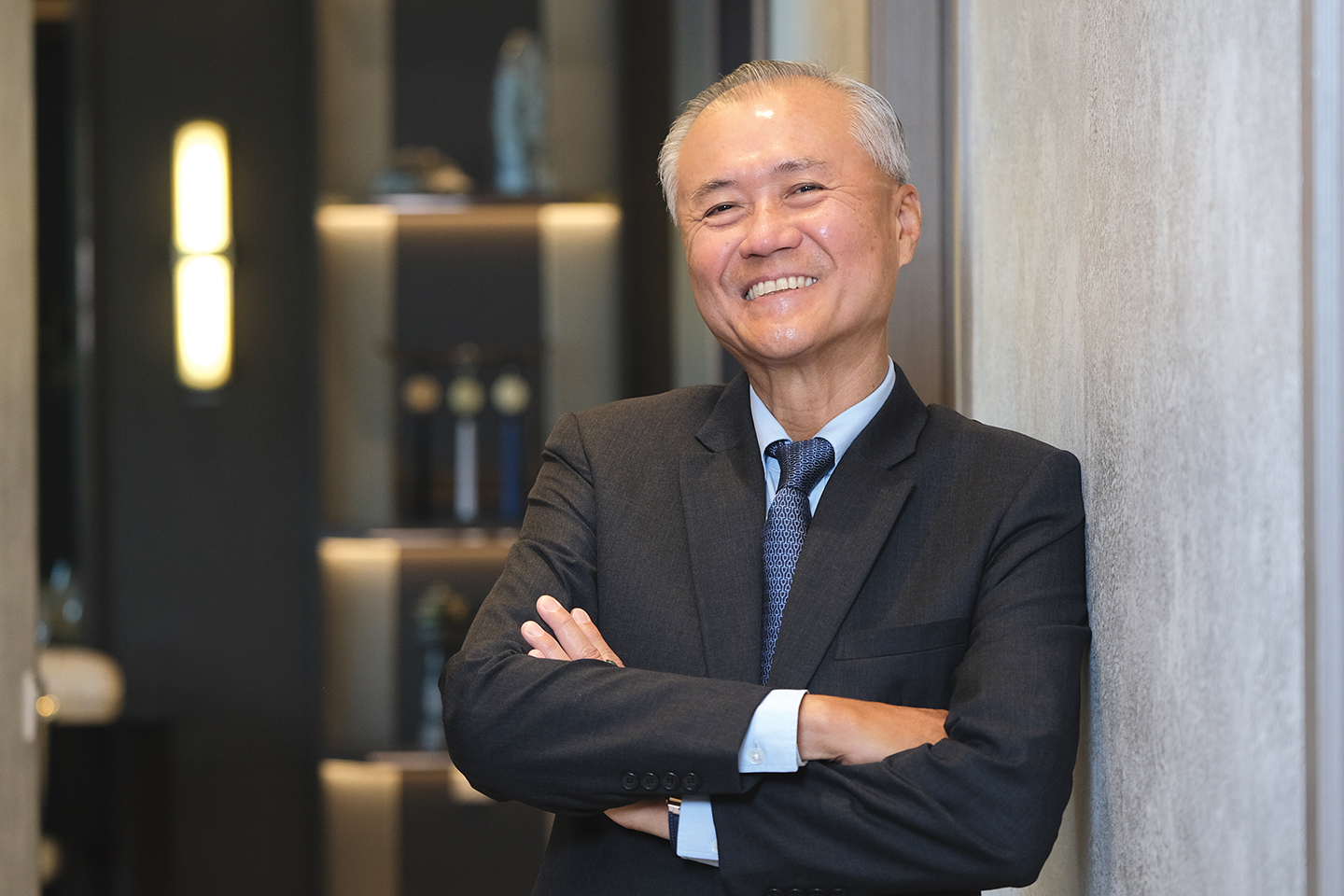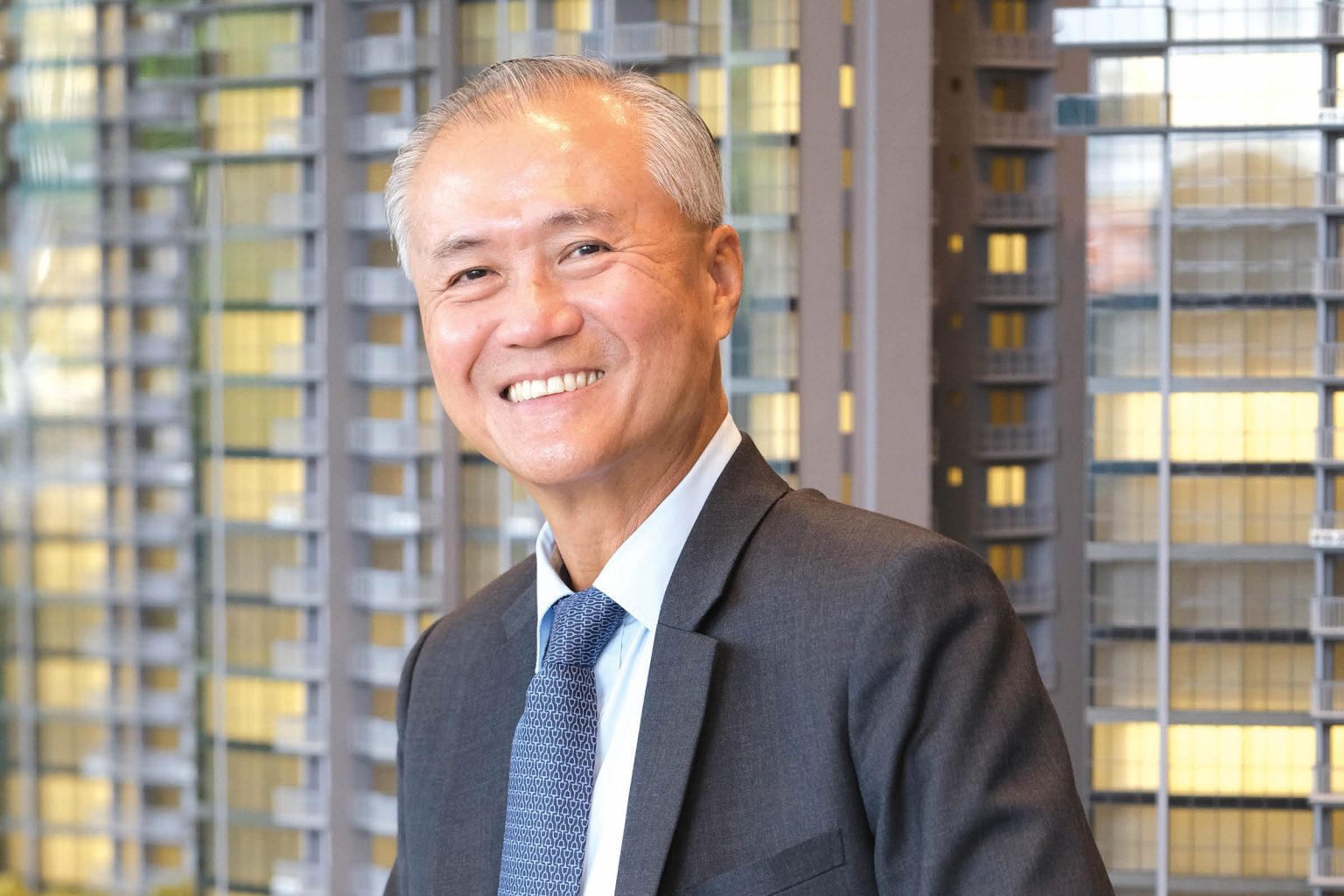For Executive Director Chee Beow Chng, the challenges kept piling on top of one another as he tried to establish Hong Kong’s Logan Property Group in Singapore just three and a half years ago. It’s a scenario he’s used to though, drawing on his years of experience working as an architect and property developer to build a reputation for Logan in one of Asia’s most hotly contested property markets.

Then add a global pandemic to the mix. Amid the unprecedented circuit breaker last year, Logan Property has managed to continue with brisk sales of the two large apartment projects it is developing by assimilating the wolf working culture of its team, sheer determination and digital technology. Chee Beow set up the Singapore office of the company with a small team. That’s the way he likes to work, he says, but has since expanded the team to 18 to deal with its burgeoning property portfolio.
“I don’t need a very big team at the setting up stage. Mine is comprised of members who are all able to multitask and have the sheer determination to grow with the company in the future,” he says. “I think a good company must have good people committed to the job, able to communicate and they must have excellent technical know-how. Our team members are intuitive, command powerful instinct and are eager to learn and contribute.”
Logan Property believes its mission is not just to build new homes, but also better quality homes. The desires of homebuyers have changed, with a greater emphasis now on lifestyle opportunities.
“Today, when people buy property, they want to use a real estate investment as a platform towards a better life, a better living environment and greater appreciation of lifestyle aspirations,” Chee Beow says.
Stirling Residences was the first property developed by a joint venture company but led by the Logan Property management team in Singapore. With 1,259 apartments, it boasts a herb garden, reflective stream, lawns and tennis court.
Logan’s second Singapore development, The Florence Residences, is another quality development with 1,410 apartments. It was marketed very successfully during the 2020 circuit breaker period by Chee Beow’s team working from home, selling apartments using a virtual apartment showroom and integrated digital delivery to streamline work processes and connect stakeholders.
He is determined for Logan Property to build a reputation in Singapore to match its parent’s outstanding reputation in both China and Hong Kong. Chee Beow adds that the company took a long-term view when it ventured into the country’s renowned, highly competitive property market. Taking this into account, reputation becomes of paramount importance.

Chee Beow believes that integrated digital delivery (IDD), which is built on the use of building information modelling and virtual design and construction, is the new platform to integrate and improve work processes and connect stakeholders throughout the design-development-maintenance life cycle of all buildings.
“To achieve real sustainability, you have to start from the beginning of a project design,” he says. “I believe IDD helps contractors to achieve less wastage, better coordination and cost savings. It increases the speed of construction and helps with future maintenance.”
Logan Property has quickly augmented the working relationships that Chee Beow has built with trusted suppliers such as Mitsubishi to ensure that developments take advantage of the latest technology and deliver more sustainable outcomes. Mitsubishi has proved to be a reliable ally that is “very attentive” to Chee Beow’s requirements.
But if there’s a single driver of Logan Property’s Singapore success, it’s the initiative of his team. “I encourage my staff to think outside of the box and analyse options before they put out a proposal,” he points out. “I give them ideas to crystallise their thinking processes and encourage them to never give in to problems.
“In my working life, I never give up easily, and I believe nothing is impossible. This is the cornerstone of ‘wolf working’ culture. Wolves use teamwork and they attack very fast. They’re very sharp. Of course, we are talking about the positive side of wolf culture!”
Chee Beow developed his own management style by working independently, handling projects across geographical boundaries such as in the US, China, Hong Kong and Malaysia. He established real estate companies in China and Hong Kong, and helped his Malaysian counterparts set up their own systems.
“I keep saying I’m lucky,” he says. “All this helped to shape me into a better leader. I had to understand people’s problems, guide them and help them find the right solutions.”
He regards Edmund Cheng, Deputy Chair of Wing Tai Holdings, as his mentor. “He told me that all managers must be able to add value to any proposal and always be creative,” Chee Beow explains. “When you receive a proposal, you don’t just pass it on to others to follow up; you always add value and see if anything can be done better.
“I have tried to pass on all these things to younger generations, to give them the opportunity to assimilate wolf working culture, to always be able to work independently and to also lead the pack, developing their leadership skills.”
Proudly supported by:




